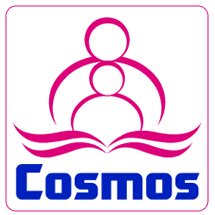EFL TEACHERS’ COGNITION OF EMERGENCY REMOTE INSTRUCTIONS
DOI:
https://doi.org/10.32520/eji.v6i2.1973Keywords:
English Teachers, Online Instruction, Teacher CognitionAbstract
This research investigated how EFL teachers made sense of online instruction during Covid19 pandemic to facilitate English language skill development. Taking a college English matriculation program as the context of the study, nine excerpts of teacher term reflections were analysed using critical incident analysis. Five cluster of incidents were identified essential to represent the landscape of the EFL teachers’ cognition of distance instruction. They were teachers’ adjustments and renewal of pedagogic practice, representation of belief system, enactment of technological pedagogical content knowledge (TPCK), involvement of their emotion, and acceptance of the abrupt changes. These themes asociated with readiness for online instruction as it was not only related to physical-technical issues, but also concerned with more intricate realm of technology integration for online learning
References
Ajzen, I. (1991). The theory of planned behavior. Organizational Behavior and Human Decision Processes, 50(2), 179–211. https://doi.org/10.1016/0749-5978(91)90020-T
Akbana, Y. E., Rathert, S., & A?çam, R. (2021). Emergency remote education in foreign and second language teaching. Turkish Journal of Education, 97–124. https://doi.org/10.19128/turje.865344
Al-Furaih, S. A. A., & Al-Awidi, H. M. (2020). Teachers’ Change Readiness for the Adoption of Smartphone Technology: Personal Concerns and Technological Competency. Technology, Knowledge and Learning, 25(2), 409–432. https://doi.org/10.1007/s10758-018-9396-6
Alqabbani, S., Almuwais, A., Benajiba, N., & Almoayad, F. (2021). Readiness towards emergency shifting to remote learning during COVID-19 pandemic among university instructors. E-Learning and Digital Media, 18(5), 460–479. https://doi.org/10.1177/2042753020981651
Azzaro, G., & Martínez Agudo, J. de D. (2018). The Emotions Involved in the Integration of ICT into L2 Teaching: Emotional Challenges Faced by L2 Teachers and Implications for Teacher Education. In J. de D. Martínez Agudo (Ed.), Emotions in Second Language Teaching (pp. 183–203). Springer International Publishing. https://doi.org/10.1007/978-3-319-75438-3_11
Balbay, S., & Erkan, G. (2021). Online Language Learning in Times of Crisis: Hindrance or Opportunity? Journal of Educational Technology and Online Learning. https://doi.org/10.31681/jetol.936827
Bandura, A. (1989). Social cognitive theory. In Annals of child development. (Vol. 6, pp. 1–60). JAI Press.
Basturkmen, H. (2012). Review of research into the correspondence between language teachers’ stated beliefs and practices. System, 40(2), 282–295. https://doi.org/10.1016/j.system.2012.05.001
Beacham, N., & McIntosh, K. (2014). Student teachers’ attitudes and beliefs towards using ICT within inclusive education and practice: Journal of Research in Special Educational Needs, Journal of Research in Special Educational Needs, 14(3), 180–191. https://doi.org/10.1111/1471-3802.12000
Birello, M. (2012). Interview: Teacher Cognition and Language Teacher Education: beliefs and practice. A conversation with Simon Borg. Bellaterra Journal of Teaching & Learning Language & Literature, 5(2), 88. https://doi.org/10.5565/rev/jtl3.464
Borg, S. (2003). Teacher cognition in language teaching: A review of research on what language teachers think, know, believe, and do. Language Teaching, 36(2), 81–109. https://doi.org/10.1017/S0261444803001903
Borg, S. (2005). Teacher Cognition in Language Teaching. In K. Johnson (Ed.), Expertise in Second Language Learning and Teaching (pp. 190–209). Palgrave Macmillan UK. https://doi.org/10.1057/9780230523470_10
Borg, S. (2015). Justifying Language Teacher Cognition Research. http://simon-borg.co.uk/justifying-language-teacher-cognition-research/
Bostanc?o?lu, A., & Handley, Z. (2018). Developing and validating a questionnaire for evaluating the EFL ‘Total PACKage’: Technological Pedagogical Content Knowledge (TPACK) for English as a Foreign Language (EFL). Computer Assisted Language Learning, 31(5–6), 572–598. https://doi.org/10.1080/09588221.2017.1422524
Breen, M. (2001). Making sense of language teaching: Teachers’ principles and classroom practices. Applied Linguistics, 22(4), 470–501. https://doi.org/10.1093/applin/22.4.470
Brookfield, S. (2017). Becoming a critically reflective teacher (Second edition). Jossey-Bass.
Bruster, B. G., & Peterson, B. R. (2013). Using critical incidents in teaching to promote reflective practice. Reflective Practice, 14(2), 170–182. https://doi.org/10.1080/14623943.2012.732945
Butterfield, L. D., Borgen, W. A., Amundson, N. E., & Maglio, A.-S. T. (2005). Fifty years of the critical incident technique: 1954-2004 and beyond. Qualitative Research, 5(4), 475–497. https://doi.org/10.1177/1468794105056924
Carrillo, C., & Flores, M. A. (2020). COVID-19 and teacher education: A literature review of online teaching and learning practices. European Journal of Teacher Education, 43(4), 466–487. https://doi.org/10.1080/02619768.2020.1821184
Celik, V., & Yesilyurt, E. (2013). Attitudes to technology, perceived computer self-efficacy and computer anxiety as predictors of computer supported education. Computers & Education, 60(1), 148–158. https://doi.org/10.1016/j.compedu.2012.06.008
Cheng, K.-H. (2017). A survey of native language teachers’ technological pedagogical and content knowledge (TPACK) in Taiwan. Computer Assisted Language Learning, 30(7), 692–708. https://doi.org/10.1080/09588221.2017.1349805
Creswell, J. W., & Creswell, J. W. (2013). Qualitative inquiry and research design: Choosing among five approaches (3rd ed). SAGE Publications.
Crookes, G. V. (2015). Redrawing the Boundaries on Theory, Research, and Practice Concerning Language Teachers’ Philosophies and Language Teacher Cognition: Toward a Critical Perspective: The Modern Language Journal. The Modern Language Journal, 99(3), 485–499. https://doi.org/10.1111/modl.12237
Cross, R. (2010). Language Teaching as Sociocultural Activity: Rethinking Language Teacher Practice. The Modern Language Journal, 94(3), 434–452. https://doi.org/10.1111/j.1540-4781.2010.01058.x
Davis, F. D. (1989). Perceived Usefulness, Perceived Ease of Use, and User Acceptance of Information Technology. MIS Quarterly, 13(3), 319. https://doi.org/10.2307/249008
De Lera, E., Fernàndez, C., & Almirall, M. (2009). Emotions: The forgotten key success in online learning. 9.
Dray, B. J., Lowenthal, P. R., Miszkiewicz, M. J., Ruiz?Primo, M. A., & Marczynski, K. (2011). Developing an instrument to assess student readiness for online learning: A validation study. Distance Education, 32(1), 29–47. https://doi.org/10.1080/01587919.2011.565496
Eickelmann, B., & Vennemann, M. (2017). Teachers‘ attitudes and beliefs regarding ICT in teaching and learning in European countries. European Educational Research Journal, 16(6), 733–761. https://doi.org/10.1177/1474904117725899
Feryok, A. (2010). Language teacher cognitions: Complex dynamic systems? System, 38(2), 272–279. https://doi.org/10.1016/j.system.2010.02.001
Fishbein, M., & Ajzen, I. (1975). Belief, attitude, intention, and behavior: An introduction to theory and research. Addison-Wesley Pub. Co.
Fishbein, M., & Ajzen, I. (2010). Predicting and changing behavior: The reasoned action approach. Psychology Press.
Flanagan, J. C. (1954). The critical incident technique. Psychological Bulletin, 51(4), 327–358.
Gacs, A., Goertler, S., & Spasova, S. (2020). Planned online language education versus crisis?prompted online language teaching: Lessons for the future. Foreign Language Annals, 53(2), 380–392. https://doi.org/10.1111/flan.12460
Gatbonton, E. (1999). Investigating Experienced ESL Teachers’ Pedagogical Knowledge. The Modern Language Journal, 83(1), 35–50. https://doi.org/10.1111/0026-7902.00004
Golombek, P. R. (1998). A Study of Language Teachers’ Personal Practical Knowledge. TESOL Quarterly, 32(3), 447. https://doi.org/10.2307/3588117
Halquist, D., & Musanti, S. I. (2010). Critical incidents and reflection: Turning points that challenge the researcher and create opportunities for knowing. International Journal of Qualitative Studies in Education, 23(4), 449–461. https://doi.org/10.1080/09518398.2010.492811
Hilton, J. T. (2016). A Case Study of the Application of SAMR and TPACK for Reflection on Technology Integration into Two Social Studies Classrooms. The Social Studies, 107(2), 68–73. https://doi.org/10.1080/00377996.2015.1124376
Hodges, C., Moore, S., Lockee, B., Trust, T., & Bond, A. (2020). The Difference Between Emergency Remote Teaching and Online Learning. 15.
Hsu, L. (2013). English as a foreign language learners’ perception of mobile assisted language learning: A cross-national study. Computer Assisted Language Learning, 26(3), 197–213. https://doi.org/10.1080/09588221.2011.649485
Hsu, L. (2017). EFL Learners’ Acceptance of Technology in a Computer-Assisted Language Learning (CALL) Context: The Role of Intrinsic-Extrinsic Motivation in English Learning. International Journal of Information and Education Technology, 7(9), 679–685. https://doi.org/10.18178/ijiet.2017.7.9.953
Hung, M.-L. (2016). Teacher readiness for online learning: Scale development and teacher perceptions. Computers & Education, 94, 120–133. https://doi.org/10.1016/j.compedu.2015.11.012
Joosten, T., & Cusatis, R. (2020). Online Learning Readiness. American Journal of Distance Education, 34(3), 180–193. https://doi.org/10.1080/08923647.2020.1726167
Kay, R. H., & Loverock, S. (2008). Assessing emotions related to learning new software: The computer emotion scale. Computers in Human Behavior, 24(4), 1605–1623. https://doi.org/10.1016/j.chb.2007.06.002
Kim, C., Kim, M. K., Lee, C., Spector, J. M., & DeMeester, K. (2013). Teacher beliefs and technology integration. Teaching and Teacher Education, 29, 76–85. https://doi.org/10.1016/j.tate.2012.08.005
Koehler, M. J., Mishra, P., & Cain, W. (2013a). What is Technological Pedagogical Content Knowledge (TPACK)? Journal of Education, 193(3), 13–19. https://doi.org/10.1177/002205741319300303
Koehler, M. J., Mishra, P., & Cain, W. (2013b). What is Technological Pedagogical Content Knowledge (TPACK)? Journal of Education, 193(3), 13–19. https://doi.org/10.1177/002205741319300303
Koehler, M. J., Mishra, P., Kereluik, K., Shin, T. S., & Graham, C. R. (2014). The Technological Pedagogical Content Knowledge Framework. In J. M. Spector, M. D. Merrill, J. Elen, & M. J. Bishop (Eds.), Handbook of Research on Educational Communications and Technology (pp. 101–111). Springer New York. https://doi.org/10.1007/978-1-4614-3185-5_9
Koh, J. H. L., Chai, C. S., & Lee, M.-H. (2015). Technological Pedagogical Content Knowledge (TPACK) for Pedagogical Improvement: Editorial for Special Issue on TPACK. The Asia-Pacific Education Researcher, 24(3), 459–462. https://doi.org/10.1007/s40299-015-0241-6
Kostamo, K., Jallinoja, P., Vesala, K. M., Araújo-Soares, V., Sniehotta, F. F., & Hankonen, N. (2019). Using the critical incident technique for qualitative process evaluation of interventions: The example of the “Let’s Move It” trial. Social Science & Medicine, 232, 389–397. https://doi.org/10.1016/j.socscimed.2019.05.014
Kubanyiova, M., & Feryok, A. (2015). Language Teacher Cognition in Applied Linguistics Research: Revisiting the Territory, Redrawing the Boundaries, Reclaiming the Relevance: The Modern Language Journal. The Modern Language Journal, 99(3), 435–449. https://doi.org/10.1111/modl.12239
Levitt, H. M., Motulsky, S. L., Wertz, F. J., Morrow, S. L., & Ponterotto, J. G. (2017). Recommendations for designing and reviewing qualitative research in psychology: Promoting methodological integrity. Qualitative Psychology, 4(1), 2–22. https://doi.org/10.1037/qup0000082
Li, L. (2020). Language Teacher Cognition: A Sociocultural Perspective. Palgrave Macmillan UK. https://doi.org/10.1057/978-1-137-51134-8
Li, Y., Garza, V., Keicher, A., & Popov, V. (2019). Predicting High School Teacher Use of Technology: Pedagogical Beliefs, Technological Beliefs and Attitudes, and Teacher Training. Technology, Knowledge and Learning, 24(3), 501–518. https://doi.org/10.1007/s10758-018-9355-2
Martin, F., Wang, C., Jokiaho, A., May, B., & Grübmeyer, S. (2019). Examining Faculty Readiness to Teach Online: A Comparison of US and German Educators. European Journal of Open, Distance and E-Learning, 22(1), 53–69. https://doi.org/10.2478/eurodl-2019-0004
Mishra, P. (2019). Considering Contextual Knowledge: The TPACK Diagram Gets an Upgrade. Journal of Digital Learning in Teacher Education, 35(2), 76–78. https://doi.org/10.1080/21532974.2019.1588611
Mumtaz, S. (2000). Factors affecting teachers’ use of information and communications technology: A review of the literature. Journal of Information Technology for Teacher Education, 9(3), 319–342. https://doi.org/10.1080/14759390000200096
Musanti, S. I. (2005). Collaboration and In-Service Teachers' Professional Development: A qualitative Study on Knowledge, Identity, and Practice. [Dissertation]. The University of New Mexico.
Pajares, M. F. (1992). Teachers’ Beliefs and Educational Research: Cleaning Up a Messy Construct. Review of Educational Research, 62(3), 307–332. https://doi.org/10.3102/00346543062003307
Parasuraman, A., & Colby, C. L. (2015). An Updated and Streamlined Technology Readiness Index: TRI 2.0. Journal of Service Research, 18(1), 59–74. https://doi.org/10.1177/1094670514539730
Pratt, D. D. (1992). Conceptions of Teaching. Adult Education Quarterly, 42(4), 203–220. https://doi.org/10.1177/074171369204200401
Puentedura, R. R. (2013). SAMR: Moving from Enhancement to Transformation. http://www.hippasus.com/rrpweblog/archives/2013/05/29/SAMREnhancementToTransformation.pdf
Richards, J. C. (1996). Teachers’ Maxims in Language Teaching. TESOL Quarterly, 30(2), 281. https://doi.org/10.2307/3588144
Richardson, J. E. (2007). Analysing newspapers: An approach from critical discourse analysis. Palgrave Macmillan.
Rogers, E. M. (1983). Diffusion of innovations (3rd ed). Free Press?; Collier Macmillan.
Schmidt, D. A., Baran, E., Thompson, A. D., Mishra, P., Koehler, M. J., & Shin, T. S. (2009). Technological Pedagogical Content Knowledge (TPACK): The Development and Validation of an Assessment Instrument for Preservice Teachers. Journal of Research on Technology in Education, 42(2), 123–149. https://doi.org/10.1080/15391523.2009.10782544
?enel, M. (2021). Exploring ELT Students’ Professional Identity Formation through the Perspectives of Critical Incidents. European Journal of Educational Research, 10(2), 629–640. https://doi.org/10.12973/eu-jer.10.2.629
Shulman, L. (1987). Knowledge and Teaching:Foundations of the New Reform. Harvard Educational Review, 57(1), 1–23. https://doi.org/10.17763/haer.57.1.j463w79r56455411
Shulman, L. S., & Shulman, J. H. (2004). How and what teachers learn: A shifting perspective. Journal of Curriculum Studies, 36(2), 257–271. https://doi.org/10.1080/0022027032000148298
Tan, P. J. B. (2013). Applying the UTAUT to Understand Factors Affecting the Use of English E-Learning Websites in Taiwan. SAGE Open, 3(4), 215824401350383. https://doi.org/10.1177/2158244013503837
Teo, T. (2011). Factors influencing teachers’ intention to use technology: Model development and test. Computers & Education, 57(4), 2432–2440. https://doi.org/10.1016/j.compedu.2011.06.008
Tripp, D. (1994). Teachers’ lives, critical incidents, and professional practice. International Journal of Qualitative Studies in Education, 7(1), 65–76. https://doi.org/10.1080/0951839940070105
Venkatesh, Morris, Davis, & Davis. (2003). User Acceptance of Information Technology: Toward a Unified View. MIS Quarterly, 27(3), 425. https://doi.org/10.2307/30036540
Venkatesh, V., & Davis, F. D. (2000). A Theoretical Extension of the Technology Acceptance Model: Four Longitudinal Field Studies. Management Science, 46(2), 186–204. https://doi.org/10.1287/mnsc.46.2.186.11926
Venkatesh, V., Speier, C., & Morris, M. G. (2002). User Acceptance Enablers in Individual Decision Making About Technology: Toward an Integrated Model. Decision Sciences, 33(2), 297–316. https://doi.org/10.1111/j.1540-5915.2002.tb01646.x
Venkatesh, V., Thong, J., Hong Kong University of Science and Technology, Xu, X., & The Hong Kong Polytechnic University. (2016). Unified Theory of Acceptance and Use of Technology: A Synthesis and the Road Ahead. Journal of the Association for Information Systems, 17(5), 328–376. https://doi.org/10.17705/1jais.00428
Wang, M. (2014). The Current Practice of Integration of Information Communication Technology to English Teaching and the Emotions Involved in Blended Learning. The Turkish Online Journal of Educational Technology, 13(3), 14.
Wosnitza, M., & Volet, S. (2005). Origin, direction and impact of emotions in social online learning. Learning and Instruction, 15(5), 449–464. https://doi.org/10.1016/j.learninstruc.2005.07.009




















